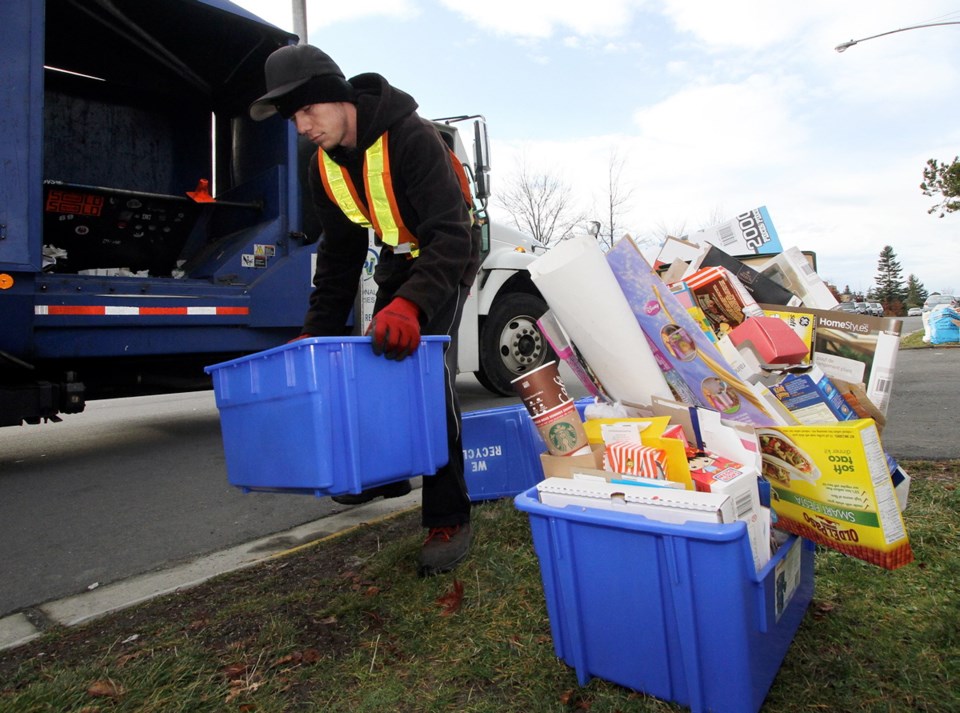Re: “For Greater Victoria, recycling can be a pain in the glass,” Jan. 3.
I would like to clarify a few of the points raised in this article — especially as they relate to curbside collection of this material.
Recycle B.C. is the provincial organization responsible for residential recycling in B.C. The Capital Regional District board decided to pay a premium above Recycle B.C. funding levels to continue collecting glass under its single-family curbside blue-box program by segregating glass into a separate collection container.
Glass-separated collection has been successful so far, thanks in large part to our residents diligently placing their rinsed glass materials safely at the curb in a separate container or bringing these items to a local recycling depot. For this reason, glass continues to be a priority for collection in the CRD’s curbside program — and we will continue to be successful if residents keep doing their part.
This complete segregation has been successful, with Recycle B.C. ensuring that glass collected through both the CRD’s blue-box program and local depots continues to be recycled, even though the markets for this material have closed from most other sources.
Glass collected on behalf of Recycle B.C. at the curb and depots in the capital region is shipped to Abbotsford to be processed into new bottles. If this glass is contaminated with other materials, it may be sent onward to a facility in Quesnel to be made into sandblast materials.
Having said that, it’s difficult and costly for private haulers to recycle glass from multi-family residences because of how it’s communally collected in these buildings. This glass is often contaminated with other materials or incorrectly placed into other streams of recyclables, breaking into small pieces that can render an entire load of otherwise recyclable materials as garbage.
In January 2018, China — the world’s largest market for recyclable markets — significantly lowered its allowable levels of contamination in recycled items from international sources.
As a result, the business decision made by some private waste haulers in our region to discontinue glass collection from multi-family residences and commercial buildings is both a reaction to the current realities facing the glass-recycling industry and an attempt to make sure that broken glass doesn’t contaminate paper and plastic materials so that these markets can be maintained.
Although the situation in some multi-family buildings isn’t ideal, this glass can still be diverted from the landfill. Residents can refuse products in glass containers or reuse them for other purposes instead of recycling them. Glass-beverage containers can also be returned for a refund alongside non-refundable jars at a number of recycling depots across the capital region.
Ultimately, this recent shift in policy from some private-waste haulers reiterates the connection we all have to our waste — how much we create, how we dispose of it and what the end life for these materials is both today and tomorrow in an ever-changing world.
For a generation now, CRD residents have done a great job recycling; however, solid-waste management is evolving and our roles as citizens and consumers in creating and managing our waste are also changing.
As residents, we’ll each have an opportunity to contribute our thoughts on this topic during the development of the CRD’s new solid-waste management plan this year, a community-informed strategy aimed at understanding and addressing our collective ideas, concerns and priorities for solid waste in the region.
On behalf of the CRD, I look forward to this community-wide conversation.
Larisa Hutcheson is the general manager of parks and environmental services for the Capital Regional District.



